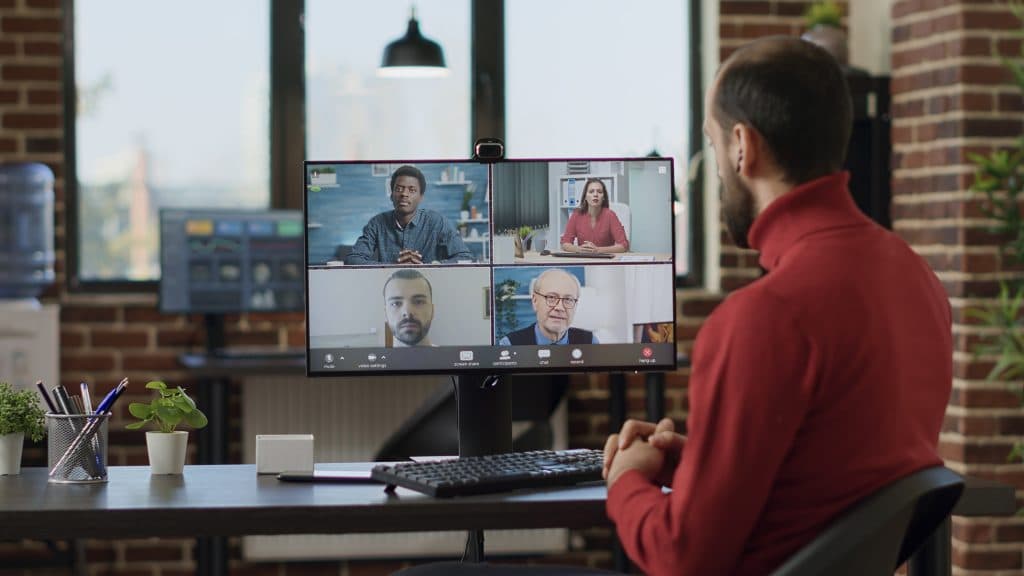How to Decide Between Becoming a Web Developer vs. Web Designer
Discover insights to choose between web developer or web designer – paving your way in the dynamic world of web development and design.
In the online world, there are two important jobs: web developers who build things, and web designers who make things look good. If you’re thinking about joining this digital world, you might wonder: Should I be a web developer or a web designer? It might feel tricky to decide, but don’t worry – this article is here to help in just three simple steps. We’ll help you figure out if you’re more into becoming web designer or if you prefer becoming a web developer. Let’s make this decision simple and fun, so you can pick the path that’s right for you!
Introduction About Web Designer and Web Developer
You might find the role of a web designer attractive. As a web designer, you are responsible for creating visually stunning things for the internet. Moreover, you also have the chance to channel your creativity into typography, color schemes, wireframes by using tools like Adobe Photoshop and Illustrator.
On the other hand, web developer could also seem like an attractive career choice. Many people express that being a web developer appears to be the ‘smarter’ option in tech industry due to high wage web developer can earn. Learning coding skills allows you to create impressive websites and web applications by using a wide range of programming languages. Furthermore, demand for web developers in the job market is substantial as there are tons of positions available for web developer.
Whether you pick design or development, your career require proper knowledge in HTML and CSS with easy projects for beginners. Once you’ve tried it out, it’s much simpler to decide if you prefer web design or web development.
Step 1: Clear Up The Misconceptions Surrounding Web Designer vs. Web Developer
To make an informed decision about your tech career, it’s vital to understand the roles of web designers and developers. You might have been exposed to definitions of “web designer” and “web developer” that don’t accurately represent these professions. It’s possible you haven’t had a genuine conversation with a real web designer or developer. My primary misunderstanding about web designersand web developer were on their earnings, the perceived difficulty in acquiring their skills, and the nature of their work.
Below I’ll debunk 3 popular misunderstandings about web developer vs. web designer.
Learning to be A Web Developer is Harder Than Learning to be AWeb Designer (or The Other Way Around)
Some people believe that learning front-end or back-end development which involves more advanced programming than beginner-level HTML is more challenging than learning design. On the other hand, some view design as harder, thinking it demands a higher degree of innate creativity and proficiency with design software, which needs to be learned.
In fact, when you’re starting from scratch, acquiring any new skill set presents a challenge. Web development and web design don’t inherently pose greater or lesser problems—your individual strengths and weaknesses will determine which path is comparatively easier for you.
Web Developer Make Way More Money
When examining average income for web developer, initially, it seems that web developer earns much more money than web designer. Particularly, web designer makes $51,274 per year while web developer makes $79,730 per year. However, when you start diving into more specialized area of web design, you’ll find some that offering competitive salary. For example, user interface designer earns $89,801 per year and user experience designer makes over $107,000 per year.
While it’s correct that, typically, a web developer earns more than a web designer, this isn’t a concern for beginners. Whether you embark on the journey to become a web developer or a web designer, becoming a senior full-stack developer with the highest salary usually takes years of experience and you won’t achieve this within a few months.
Web designers can still earn a substantial income. Given that both fields offer lucrative opportunities, it’s advisable to prioritize what will bring you greater satisfaction rather than choosing solely based on perceived higher pay.
Web Designer Don’t Need to Know Coding Skills At All
It is true that web designers don’t necessarily need to be coding experts. However, for web designer, having an understanding of coding can be useful. If they understand the basics of HTML and CSS, they possess the knowledge to present a design that developers can translate into code. This knowledge allows them to discern what works and looks best, efficiently organize design files for developers to access essential information.
Today, some designers do both desing and coding. It is apparent that having coding skills is considered useful. Additionally, learning a CSS preprocessor along with learning jQuery, a JavaScript library, can further enhance their skill set. Beginning with beginner-level HTML projects and CSS lessons, and practicing with HTML and CSS projects, offers a practical approach to gaining experience in coding.
For those transitioning or entering the tech industry, enhancing your chances of securing a full-time or freelance web design position involves acquiring two essential skills. First, having a solid understanding of coding is crucial. Second, the ability to transform your designs into functional prototypes and user interfaces is equally important. To thrive in the field, being the complete package of both a designer and a programmer is highly beneficial.
Step 2: Find Out Web Developer and Web Designer’s Responsibilities
Web design exists within the broader domain of design, a field that encompasses graphic designers, UI designers, visual designers, and UX designers. The primary focus of web designers is the creation of design elements and components fitted for online platforms. Their tasks span from creating user-friendly website designs from the ground up to contributing user-facing assets and graphics, including logos, images and icons,
Web designers play a crucial role in creating the overall vision and plan for a website. Their tasks involve determining the site’s layout, color palette, font set and visual themes. Rather than coding, web designers use their knowledge of color theory and tools like InVision to create mockups, prototypes, and templates. They pay close attention to how their designs impact user experience and the overall aesthetic of the website.
Once the designs are finalized, web developers use coding languages like HTML and JavaScript to transform plans into functional websites. For back-end developers, the focus may involve programming languages such as PHP, Java, Python to build databases, enabling dynamic content updates and user information submissions. Full-stack developers are capable of handling both front-end and back-end tasks.
Web developers may also code server-side interactions, such as calling APIs or using SQL to query databases, depending on whether they are front-end or back-end developers. Additionally, they use tools like GitHub to save and push code live to a webpage or web app. This collaborative effort between designers and developers ensures the smooth creation and deployment of effective and visually appealing websites.
Step 3: Analyze Yourself
Once you have clear understanding of actual distinctions between web designer and web developer, next step is deciding which suits you best. If you’ve checked the role descriptions and find yourself thinking, “I can handle either of these!” – that’s perfectly fine. The added information provided below for both web designer and developer should offer further guidance.
Web Designer
Designer often see the world through a visual lens. Web designers also rely on intuition and feelings, as a significant portion of their time is dedicated to shaping the aesthetics and user interfaces of websites. For instance, if tasked with placing a word at the center of a page, they are likely to rely on their judgment rather than precise measurements.
The joy of conceptualizing broad ideas and visualizing the complete picture is a characteristic trait of web designers. If a web designer were involved in creating a theme park, their initial focus would likely be on the overall environment, layout and the user’s experience, before delving into details like colors, shapes and ride names.
Web Developer
They view the world as a vast collection of data that can serve various purposes. For instance, if you asked a web developer to place a word at the center of a page, they would likely use a quick and useful method, such as folding the paper evenly into four squares or using a ruler.
When solving significant projects, web developers prefer a systematic approach, focusing on one step at a time and paying careful attention to details. For example, if a web developer were involved in building a theme park, they would enjoy working on the details of ride physics and calculating the park’s visitor capacity, solving each aspect step by step.
Conclusion
In conclusion, the decision between becoming a web developer or web designer is a pivotal moment that shapes not only one’s professional journey but also the impact one can have on the digital world. Take the time to reflect on personal aspirations, consider the dynamic industry trends, and make an informed decision that aligns with a successful career path.
Related Articles

Jul 22, 2025
Read more
The Cost of Hiring the Wrong Developer (and How to Avoid It)
A bad developer hire can cost you time, money, and trust. Here's how to spot red flags early—and avoid hiring the wrong developer.

Jul 16, 2025
Read more
How to Hire Remote Developers: Your Ultimate Guide
Hire remote developers with ease. Find where to locate top remote developers and vet them right in this guide.

Jul 14, 2025
Read more
CASE STUDY: Making Digital Screens Work Together Perfectly
8Seneca fixed Android display synchronization for a retail client with a simple, effective solution. Download the full case study.

Jul 08, 2025
Read more
Python for Business: How It Saves You Money and Time
Save money & time with Python development for your business. Learn how efficient Python software helps companies grow faster.

Jun 30, 2025
Read more
Digital Transformation for Business: What You Need to Know
Mastering digital transformation for your business. Get clear steps for tech adoption, growth, and a secure future.

Jun 25, 2025
Read more
The Ultimate Guide to Hiring Remote Developers for Your Tech Team.
Learn to hire remote developers successfully. Discover benefits, overcome challenges, and find top global tech talent with 8Seneca's guide.
